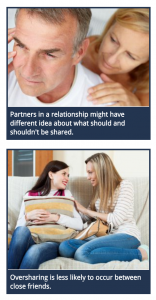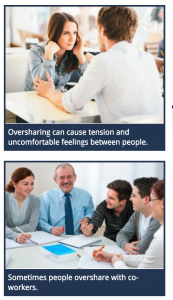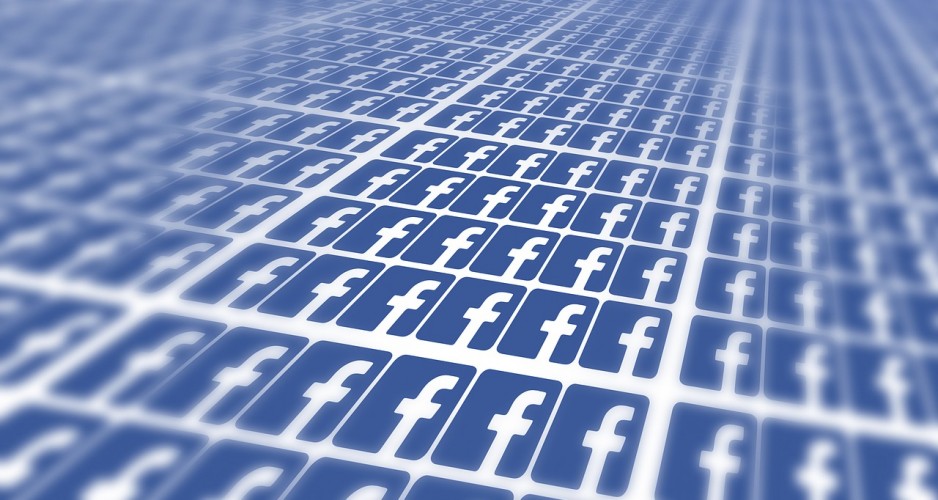“Oversharing would describe a panel of situation that people willingly post online and want it seen and “liked” by others on social media. It brings positive personal self-esteem, self-confidence and the feeling of self-achievement.”
The other day I was reading “Forgive me if I overshare. I’m just trying to help” by the guardian British journalist Isabelle Oderberg and agreed on her position suggesting it is not that easy to tell what oversharing could mean; that’s the reason I thought the best way to do it would be to havea look at posts, shared online content and comments on social platforms such as Facebook and then compare what would be considered as oversharing or not.
One one hand, it is important to say social media are being used to make everyone feel they are in the same playing field. As specified in the headline the Daily Mail article “Revealed, what your Facebook says about you” by Lauren Labrique, sharing a status can bring a lot of informations about your actual state of mind. In other words, the aim of posting online good news like a new relationship status, a successful job interview is your call to nicely tell your “friends” to please comment on your event and making you feel good in your shoes.



On the other hand, is it awkward to see now how social media can be used against you, especially when you are passing an interview for you first job and trying to leave a good impression to the person employing you. For instance, let’s imagine the following scenario: you are owning a Linkedin or Viadeo account – so a professional one – but you also like to post pictures of your friend’s puppy because it is so cute and the video was uploaded in Youtube, the warning here wold be to tell it is fine to do this but don’t forget t change your Facebook settings to Friends Only.
 On the other hand, everything we do is directly linked to our professional life. The way we build our reputation on the Internet will tell more about our personality and skills. It can be complicated today to prevent anyone interested in your resume from looking at your Facebook profile to see how serious you are, if you can adapt quickly to any workplace and how you handle stressful contexts.
On the other hand, everything we do is directly linked to our professional life. The way we build our reputation on the Internet will tell more about our personality and skills. It can be complicated today to prevent anyone interested in your resume from looking at your Facebook profile to see how serious you are, if you can adapt quickly to any workplace and how you handle stressful contexts.
As a conclusion oversharing would describe a panel of situation that people willingly post online and want it seen and “liked” by others on social media. It brings positive personal self-esteem, self-confidence and the feeling of self-achievement. In other terms, oversharing is the 21st century virtual reality opening its doors, letting people expressing their deepest narcissists desires and deceptions.
‘Forgive me if I overshare on social media. I’m just trying to help’ (2015) The Guardian, 17 Sep, available: http://www.theguardian.com/commentisfree/2015/sep/17/forgive-me-if-i-overshare-on-social-media-im-just-trying-to-help [accessed 25 Jan 2016].
What Does Your Facebook Status Says about YOU | Daily Mail Online [online] (2016) available: http://www.dailymail.co.uk/health/article-3092923/Revealed-Facebook-status-says-Narcissists-post-achievements-neurotic-people-write-partners.html [accessed 25 Jan 2016].
What Is Oversharing? (with Pictures) [online] (2016) wiseGEEK, available: http://www.wisegeek.com/what-is-oversharing.htm [accessed 25 Jan 2016].
